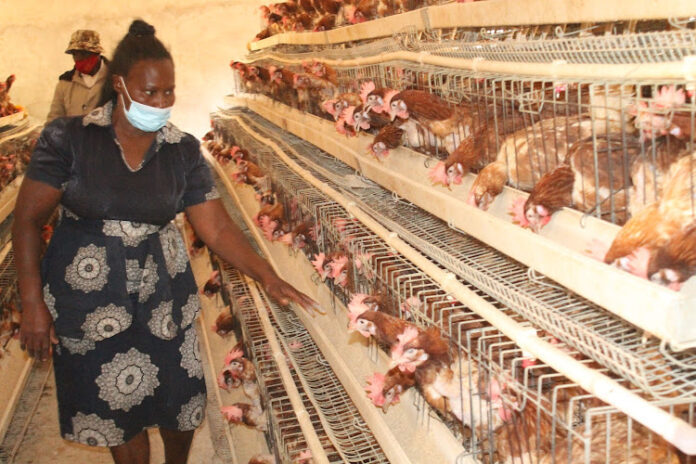Colleta Musyimi, a Machakos County-based poultry farmer, is now a millionaire just a few years after resigning from her secretarial job for poultry farming.
The farmer practices modern poultry farming where her birds are confined in cages in her rural home in Mbiuni village, Mwala, Machakos County.
The mother of three started the venture with a capital of Sh1.2 million, which was partially used in the setting up of the cages and acquiring the birds.
“I started with 300 chicks but later added 700, making them 1,000 after realizing that the business was thriving and I was making lots of profits,” She said.
She revealed that her business peaked so quickly as she is the only farmer practicing commercial poultry farming in her entire neighborhood.
According to her, the battery cages and modern technology used in poultry rearing are very profitable. While the initial installation of the system is very expensive, Musyimi says, she incurs minimal management costs, and minimal labor is required as the birds are in cages.
“The battery cage system is good since there is no wastage of feed, eggs don’t get dirty and the birds are safe. The birds feed at all times because the technology allows for self-service as water freely flows into the cages, separately from where the birds are fed. They equally have laying boxes where eggs are picked once they lay.” She said.
Amos Nyambane: Graduate Making Millions In Poultry Farming After Lack of Office Job
The farmer who has employed just one worker to tend to the 1,000 birds collects a minimum of 26 crates of eggs in a day, translating into 780 eggs a day.
She has a ready market at Masii, Kabaa, Kithimani, and Makutano towns, where she sells each crate of eggs at a minimum of Sh300. She sells at least 100 crates after four days.
“There are challenges when the chicks are young, from one day old to three months. The challenges include diseases, but after they start laying eggs at four months, no much work and diseases.”
She feeds the bird 100kg of feed and 220 litres of water daily. Among the measures she puts in place to prevent reduced yield include disposing off the chicken after two years and four months when they can no longer lay eggs normally. She sells each bird at Sh400.
“I advise Kenyans to venture into this business if they are capable. One-day-old chick costs Sh120. With good capital, you can start with 1,000 chicks making Sh120,000.”
Musyimi said these can be fed with 2o bags of chick mash for the first month and 25 bags of the same in the second month.









